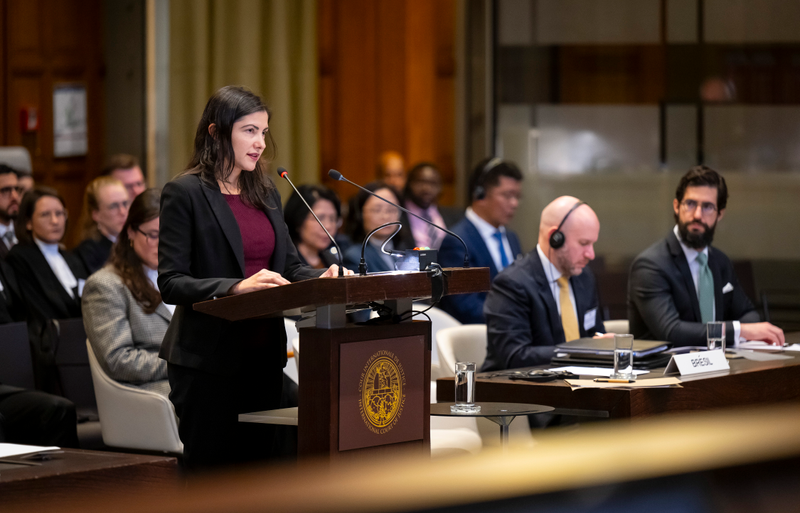On 21 February, the International Court of Justice (ICJ) held its third day of hearings on the Israeli occupation of the Palestinian territories in the West Bank.
China expressed its support for the right of Palestinians to engage in an “armed struggle” against Israel, stressing that this is not “terrorism”, on the fourth day of hearings at the ICJ in a case against Israel’s illegal occupation of Palestinian territories.
“In pursuit of the right to self-determination, the Palestinian people have the right to use force to resist foreign oppression and complete the establishment of the Palestinian state,” said Ma Xinmin, legal adviser to the Chinese Foreign Ministry.
Citing examples of “several people who liberated themselves from colonial rule” through armed resistance, Xinmin argued that acts of resistance against Israeli occupation were “not terrorism” but a legitimate armed struggle and an “inalienable right”.
“Many other resolutions recognize the legitimacy of struggle by all available means, including the armed struggle of peoples under colonial domination or foreign occupation to realize the right to self-determination,” the Chinese official said.
“Chinese President Xi Jinping has stressed on several occasions that China calls for a comprehensive ceasefire and an early resolution of the Palestinian issue based on a two-state solution through negotiations,” he added.
Xinmin took the podium before Iran’s deputy foreign minister for legal and international affairs, Reza Najafi, who highlighted Israel’s historic violations of the Palestinians’ right to self-determination.
“The establishment of the Israeli regime was carried out through a violent process that included the forced displacement of the indigenous Palestinian people to create a majority Jewish colony in line with the Zionist movement,” Najafi said.
He also listed several ongoing violations by Tel Aviv, including the prolonged occupation and manipulation of the demographic composition in the occupied Palestinian territories, changing the character and status of Jerusalem, and discriminatory measures and violations of the rights of the Palestinian people to permanent sovereignty over their natural resources.
“The expansion of settlements, segregated roads and barriers, and checkpoints have created a system of apartheid that isolates Palestinian communities,” Najafi added, before targeting the UN Security Council (UNSC) for its “inaction or inadequate action”, stating that this is one of the “main causes of the prolonged occupation of the Palestinians” and stressing that the UN’s highest body is “paralyzed due to the deadlock” caused by a “certain permanent member”.
“All the atrocities and crimes committed by the Israeli regime in the past almost eight years are a consequence of such inaction,” the Iranian official concluded.
Iraq’s representative to the ICJ, Hayder Shiya al-Barrak, took the podium next and urged the ICJ to respect previous court orders against Israel, such as those issued after the South Africa case, to “stop the systematic killing machine against the Palestinian people”.
“We hope that the court’s commitment to justice will lead to further decisions… reaffirming its commitment to ending the campaign of mass murder and preventing acts of genocide, as well as the policy of harassment, blockade, and starvation against the Palestinian people,” he said.
Barrak concluded his speech by calling on the World Court to make decisions “that will protect the lives of Palestinian men, women, children and the elderly, and allow them to enjoy a life of dignity and security where all human rights are respected”.






